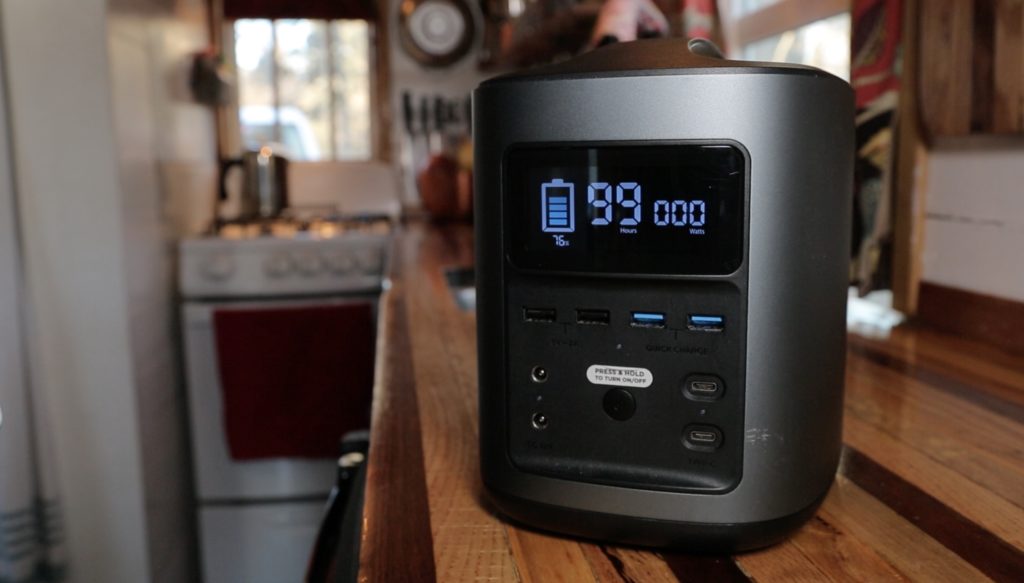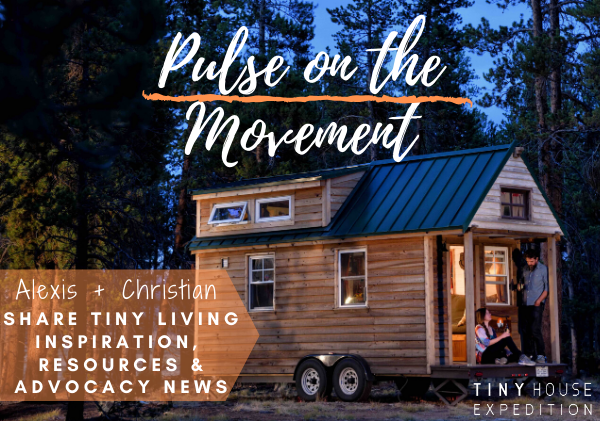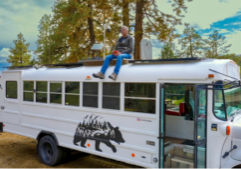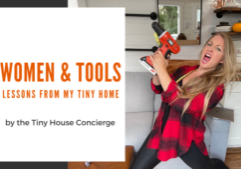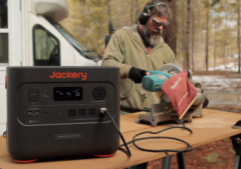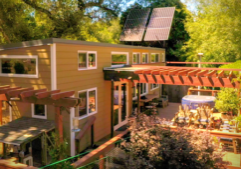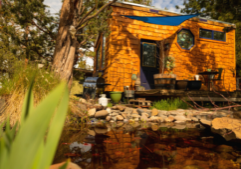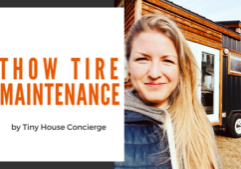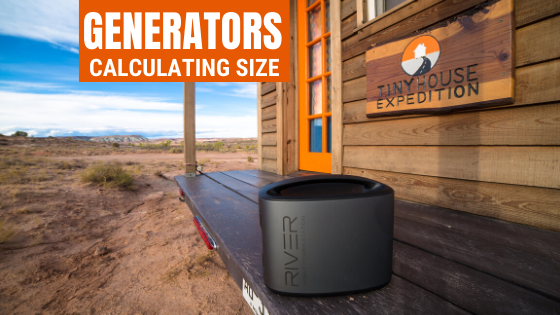
How To Calculate What Size Generator You Need To Power Your Tiny House
Whether you have an on or off-grid tiny house setup, generators can be useful tool for backup power.
These days with a societal shift towards minimalism combined with increasingly high house prices, more and more of us are looking for alternative ways to live. Tiny houses have become a really popular way to build a unique and functional home and simplify our lives.
There are so many options when it comes to setting up the perfect tiny house, but even if you're not planning to live totally off the grid, one thing tiny houses should consider is a generator to power all of your appliances.
There is a huge range of generators (solar, biodiesel, diesel, propane, gas) that are available and choosing the right one will depend on what appliances you need to run.
To help you make the right choice, this article is a guide to how to calculate what size generator you need to power your tiny house.
1. Consider What Appliances You Will Have in Your Tiny House
Many people who choose to live in a tiny house are trying to live more simply while others are looking for more cost-effective housing. Your reasons for joining the tiny trend wave will go a long way to deciding how much technology you want in your tiny house. If you want to switch off a little, think about the minimum appliances necessary. For many minimalist tiny house owners, this usually means cooking appliances and a refrigerator.
On the other hand, for those people who want the freedom of a tiny house but still want modern comforts, you can install all the same appliances that you get in a regular house. This will also include cooking appliances and a refrigerator, but it may also mean a dishwasher, TV, stereo, and computers.
Another thing that you need to consider is where you will be living as you may need additional gadgets to heat or cool your home as necessary.
If your tiny house will be somewhere cold then you will need to run electric heaters as tiny houses are not suitable for central heating or log fire. Likewise, if you are living somewhere hot, then you are going to need a free-standing air conditioning unit or, at the very least, some fans.
2. Calculate the Total Wattage Requirements of all Your Appliances
Different appliances have different wattage requirements, so you will need to find out the requirements for each and then calculate the total. You will be able to find the power requirements of your appliances in their instruction manuals, but if you can’t find the manuals, then you can search online for the right model, and you will be able to find it there.
There are some great online calculators that enable you to input all of the different appliances that you need to run, and it will tell you the minimum wattage output requirements of the generator that you need to buy.
Many appliances are specially designed for tiny house living, which run on fewer watts than regular appliances, so make sure that you do thorough research before choosing the electrical items for your tiny home.
3. Choose a Generator with Sufficient Power Capacity
Generators come with a vast range of power capacities, and so the next thing that you have to do is choose one that has the capability to power all of your appliances. The experts at Ablesales say that it is better not to continually run your generator at capacity as this can cause it to burn out and will reduce its life expectancy.
When choosing a generator, look for one that can provide more power than you need so that it does not need to overwork. Not only will this keep your generator in good condition for longer, but it will also save on fuel as engines are much more fuel-efficient when they are running at a lower capacity.
The most powerful generators are standby generators, which are usually used for powering regular houses or providing backup emergency power. These are not generally suitable for tiny homes as they need to be permanently installed, so the best option is a portable generator.
There are some really powerful portable generators on the market, so as long as you correctly calculate your power requirements, you will easily be able to find one that suits your needs.
4. Choose what Kind of Generator You Need
There are various models of portable generators available, and you need to decide which will be the most appropriate for your tiny home.
The most important considerations that you will need to make are the type of fuel that it uses and how noisy it is.
Generally speaking, many advise a diesel-powered generator rather than a gas one for your tiny house. There are many benefits to choosing a diesel generator. First of all, diesel generators are more fuel-efficient than gas generators, which means that even though diesel fuel is more expensive than gas, it costs significantly less to run a diesel generator.
Like many tiny house owners or looking to save money, a diesel generator can help them do that. Secondly, diesel generators are a lot more resilient than gas generators and can be moved around from place to place without being damaged or losing performance ability.
Additionally, diesel generators have a far higher life expectancy than gas generators. So as long as you take good care of it, your tiny house's diesel generator will not need any significant maintenance or service for many, many years.
If you want to reduce your footprint further, there's an increasing number of solar generator and biodiesel generator options.
In Conclusion
The tiny house lifestyle is appealing to so many people who want to minimize their lives and simplify their homes. While for some people, a huge part of living in a tiny house is getting off the grid, many people still want the same modern appliances and comforts as they would have in a regular-sized home.
Whatever your level of electrical needs, a suitable generator is required to make sure you can power your appliances. If you are looking for a generator for your tiny house, follow this guide to make sure that you choose the right one.
Humble Handcraft builds tiny houses powered by solar and a biodiesel generator! Watch to learn more.
Good Tiny News Delivered Weekly!
Sign-up for our weekly newsletter featuring the latest good news, design inspiration, legal victories, and new resources to help you achieve your dreams!

